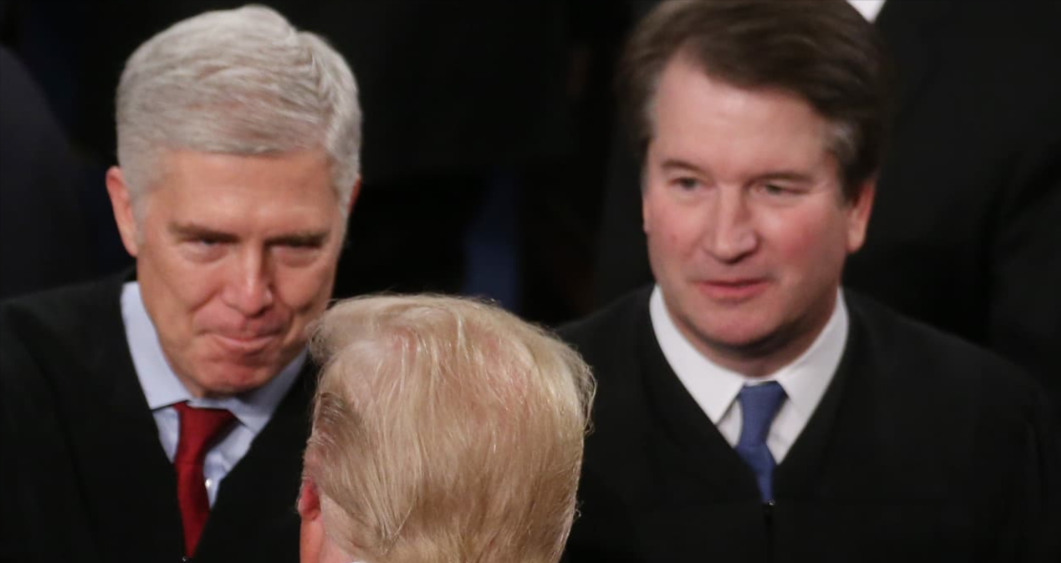Supreme Court Turns Down Bid To Revive Youth Climate Lawsuit

On Tuesday, the Supreme Court declined to revive a lawsuit brought by 21 youth activists who argue that the federal government’s energy policies violate their constitutional rights by worsening climate change.
The Court’s decision not to review the Juliana v. United States petition marks a significant hurdle for this youth-led climate lawsuit. Originally filed in 2015 by the nonprofit law firm Our Children’s Trust, the case has faced multiple obstacles in lower courts. The group contended that the 9th Circuit incorrectly instructed an Oregon federal judge to dismiss the case and sought intervention from the Supreme Court to reinstate their claim, according to the Washington Examiner.
After years of legal battles, the 9th U.S. Circuit Court of Appeals ordered the case’s dismissal in 2020. In May, a three-judge panel from the 9th Circuit upheld this dismissal, effectively stopping the plaintiffs’ efforts to continue the case, the outlet reported.
According to Our Children’s Trust (OCT), its mission is to establish “legal rights to a safe climate” for future generations. Despite the Supreme Court’s decision, plaintiffs’ attorney Julia Olson emphasized that the core issue remains unsettled.
“The standing of children to be heard in their right to life case is a pressing issue of national importance,” Olson stated in a comment to Reuters.
The youth plaintiffs still have the option to request a Supreme Court review, with a deadline for filing a certiorari petition set for December 9. This step would allow the activists to present broader arguments on why their case merits consideration and why they believe they have standing to sue the federal government over its climate policies.
In Juliana, the plaintiffs argued that the federal government knowingly pursued policies that accelerate climate change despite the well-known dangers of relying on fossil fuels. The 9th Circuit, however, ultimately ruled that the judiciary was not the appropriate branch to address such a wide-reaching and complex issue.
This lawsuit is part of a larger wave of climate litigation led by youth activists, with several similar cases across the country in which plaintiffs seek to hold state and federal governments accountable for policies they argue contribute to climate change. While some of these youth-led climate cases have encountered obstacles, others have made notable progress.
For example, in 2023, a Montana judge found that the state was violating young residents' rights by restricting the consideration of climate impacts in new fossil fuel projects. Additionally, Hawaii reached a landmark settlement this year to decarbonize its transportation system by 2045, as noted by the Examiner.
In another ruling on Tuesday, the Supreme Court declined to hear an appeal from John Nassif, a Florida man convicted for his involvement in the January 6, 2021, attack on the Capitol.
Nassif challenged the constitutionality of a law that bans “parading, picketing, and demonstrating” inside the Capitol, arguing it violates First Amendment protections for free speech and assembly. This charge has been frequently applied to defendants from the January 6 events.
President-elect Donald Trump is reportedly considering pardons for numerous individuals involved in the Capitol riot.
Nassif, 57, received a seven-month prison sentence after being convicted on multiple misdemeanors, including disorderly conduct and violent entry. Prosecutors had recommended a sentence of 10 to 16 months, according to the Washington Examiner.
Nassif’s defense argued that he entered the Capitol nearly an hour after the breach, stayed for less than 10 minutes, and engaged in what they described as “core First Amendment expression” that was “in no way disruptive.”
Lower courts, including the U.S. Court of Appeals for the D.C. Circuit, rejected Nassif’s arguments. A three-judge panel ruled that the Capitol is not a public forum open to protests, allowing the government to impose viewpoint-neutral and reasonable restrictions to maintain order and security.
“Nassif has not established that the Capitol buildings are, by policy or practice, generally open for use by members of the public to voice whatever concerns they may have — much less to use for protests, pickets, or demonstrations,” the panel wrote.